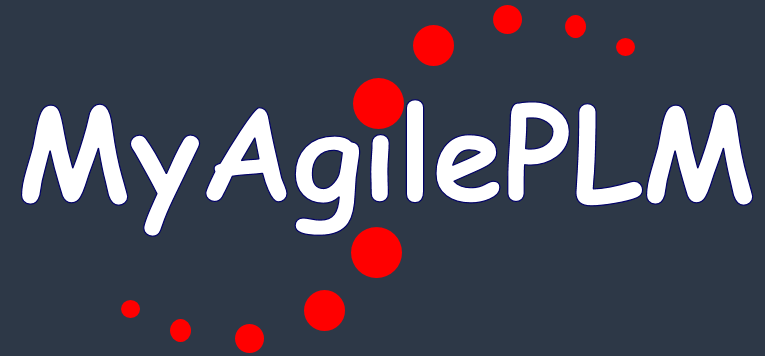By Terrell Winfree, Managing Consultant, Global Oracle Practice, DXC and Brendan Donlin, Senior Consultant, DXC
Whether you’re an automaker, a big-box retailer, or a grocery store, chances are you’re constantly moving things from point A to point B. Sounds simple, but the reality can be maddeningly complex, requiring you to orchestrate vast fleets of vehicles and thousands of logistical variables. Transportation management is literally where the rubber meets the road – and how well you do it can make a big difference in everything from cost control to customer satisfaction.
We’ve found that the cloud is an ideal platform for managing transportation and logistics because it allows multiple parties – including your partners and customers – to seamlessly collaborate, from submitting orders to verifying rates to checking on delivery status. Plus, only the cloud can effectively integrate a range of emerging technologies like artificial intelligence, machine learning, and the Internet of Things.
For example, more and more companies are now deploying IoT sensors to track vehicles and the goods they’re carrying. Using these new tools, companies can find out not only where their orders are, but whether they’ve had a bumpy ride, or if temperatures have been too hot or too cold along the way, affecting product quality. If your shipment of shrimp – or a critical medicine – traveled for 10 hours at 100 degrees, you would want to know about it.
The world of transportation management continues to evolve as companies adopt the latest digital technologies to bring greater efficiencies across their supply chains. To learn more about DXC’s vision of this dynamic industry, watch our webinar Demystifying the Future of Transportation Management.
Turn and face the change
While there’s no doubt the cloud offers clear advantages for transportation managers, many of our customers are reluctant to make the move. Why?
The truth is, moving to the cloud – or simply moving to any kind of formal transportation management system – can be a huge cultural shift for companies. Many companies we’ve worked with were running their transportation networks for decades on spreadsheets and one-of-a-kind homegrown systems. Not surprisingly, the teams using those legacy systems had become “emotionally attached” to their existing processes, and they also worried about giving up control of data to outside parties. Yearly and quarterly update are becoming standard these days. And while the constant refreshes can help you stay on the cutting edge of logistics technology, it can also be disorienting to teams unaccustomed to frequent change.
We’ve found that most companies moving to the cloud can benefit from a robust change management program. This is important because no matter how good your system looks on paper, if you can’t get people to use it in their daily jobs, then your cloud initiative can easily fall flat – or fail altogether. DXC can help make sure that users aren’t taken aback when the new system hits their desktops, and that they are already vested in the new platform and ready to champion it.
A recent client, for example, had gone through so many acquisitions that they found it difficult to standardize logistics across the whole company. Our proactive change management program helped to deal with the complex transition to a single global transportation management platform.
Oracle and DXC: Defining the future of transportation management
Today, a new generation of cloud-based solutions is putting core tasks like shipping and receiving onto a modern, flexible platform that can drive cost savings, revenue, and competitiveness. Let’s face it, the cloud is the future of transportation management. With solutions like Oracle Transportation Management Cloud, for example, you can plan and execute domestic and international shipments – all in one system – to create a more efficient logistics network. You can easily manage your fleet, optimize the capacity of containers, consolidate orders, streamline the flow of goods, and synchronize calendars with partners and customers.
But there is another big reason why companies are moving transportation management and logistics to the cloud: They can save a lot of money by reducing their dependence on on-premises data center hardware and labor.
Despite all the advantages of cloud, many companies wonder whether now is the right time to move. At DXC, we offer a Cloud Assessment Service to help companies evaluate the “cloud readiness” of their current IT infrastructure and develop a roadmap for migrating logistics to the cloud.
To get there faster, we’ve built a collection of market-tested core solutions based on Oracle Transportation Management Cloud, including a set of pre-built process flows to handle everything from order management to full network visibility. Add to this our library of configuration guides and training resources and you have everything you need to move transportation management and logistics to the cloud quickly and securely.
One of the best things about moving transportation management to the cloud is that you can take the savings from spending less on data center hardware and labor (see above) and put it toward improving other areas of the business. It allows you to free up budget to innovate and invest in new technologies like artificial intelligence, robotic process automation, and IoT – as well as further build out your cloud infrastructure and modernize your remaining legacy systems.
Looking ahead, we expect advances in transportation management to accelerate as cloud-powered technologies open up exciting new possibilities for supply chain collaboration and optimization at an affordable cost. The days of managing shipping and receiving on spreadsheets are coming to an end, and the future – increasingly mobile, automated, and cloud-based – will offer new ways for enterprises to drive growth and profits. Just remember to bring your users along on the journey.
Looking to transform the way you manage transportation and logistics in the Cloud? Learn how DXC can help.


Be the first to post a comment.